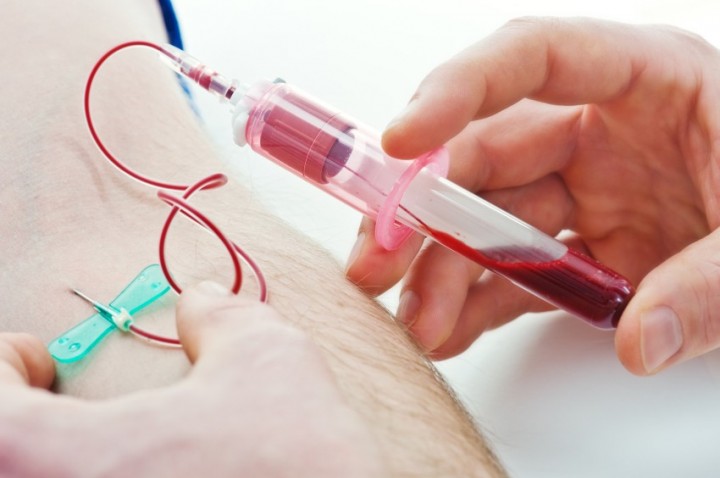Thorough Phlebotomy Training: Become Certified and Excel as a Skilled Phlebotomist
Are you interested in a rewarding healthcare career that helps save lives and improve patient well-being? Phlebotomy training offers an excellent pathway into the medical field, focusing on the vital skill of drawing blood for laboratory testing. Whether you’re just starting out or seeking to refine your skills, comprehensive phlebotomy training provides the foundation to become a certified and confident phlebotomist. In this guide, we’ll explore everything you need to know about phlebotomy education, certification processes, practical skills, and how to excel in this dynamic healthcare role.
What is Phlebotomy?
phlebotomy is the medical procedure of making blood specimen collections from patients for laboratory testing, transfusions, donations, or research. Skilled phlebotomists play a crucial role in healthcare by ensuring blood samples are drawn safely,accurately,and with minimal discomfort to patients.
Why Choose a career in Phlebotomy?
- High demand: The healthcare industry continually requires well-trained phlebotomists, ensuring job stability.
- Entry-level opportunity: No extensive medical degree required; training can be completed in a few months.
- Flexible working environments: Hospitals,clinics,blood banks,mobile blood drives,and more.
- Competitive compensation: Entry-level salaries are attractive,with room for growth upon gaining experience and certification.
- Rewarding work: Directly contributing to patient care and diagnostic accuracy.
The Path to Becoming a Certified Phlebotomist
Embarking on a career in phlebotomy involves several key steps:
- Research state and national requirements: Certification regulations vary by location; make sure to understand what is required in your area.
- Enroll in a reputable phlebotomy training program: Look for programs that cover both theoretical knowledge and hands-on practice.
- Complete the required training hours: Typically 40-120 hours,including classroom instruction and practical experience.
- Pass the certification exam: Most jurisdictions recognize certifications from organizations like the American Society for Clinical Pathology (ASCP) or National Phlebotomy Association (NPA).
- Maintain your certification: Continuing education and periodic renewal ensure your skills stay current.
Features of a Comprehensive Phlebotomy Training Program
When selecting a phlebotomy training course, ensure it offers:
- Accredited curriculum: Coverage of anatomy, blood collection techniques, safety procedures, and infection control.
- Hands-on practice: Supervised blood draws from consenting volunteers or mannequins.
- Certification exam readiness: Test-taking strategies and review materials aligned with certification standards.
- Job placement assistance: Support for internships or employment opportunities.
Core Skills and Practical Tips for Aspiring Phlebotomists
Essential skills
- Patience and empathy: Comforting patients, especially those who are anxious or fearful.
- Attention to detail: Correct labeling, sample handling, and documentation.
- Good hand-eye coordination: Precise blood draw techniques.
- Strong dialog skills: Explaining procedures clearly and calming patients.
Practical Tips for Success
- Practice safety protocols: Always use personal protective equipment (PPE) and follow infection control guidelines.
- Choose the right vein: The median cubital vein is usually the best option for blood draws.
- Use proper equipment handling: Properly prepare needles and collection tubes.
- Maintain patient comfort: Ensure proper positioning and communicate throughout the procedure.
- Stay organized and maintain records: Accurate documentation enhances professionalism and compliance.
Benefits of Certified Phlebotomy training
| Benefit | Description |
|---|---|
| Increased employability | Certification proves your skills and boosts your job prospects. |
| Higher earning potential | Certified phlebotomists frequently enough earn more than non-certified peers. |
| Professional recognition | Certification from reputable organizations demonstrates your competence. |
| Career advancement | Certification opens doors to specialized roles and leadership positions. |
Case Studies and First-Hand Experiences
John, a recent graduate of a comprehensive phlebotomy training program, shares his journey:
“The hands-on training and mentorship helped me develop confidence in my skills. Landing my first job was easier because I was certified, and I continue to grow professionally.”
Such experiences highlight the importance of practical training and certification in becoming a prosperous phlebotomist.
Final Thoughts
Becoming a certified and skilled phlebotomist is a rewarding career choice with ample opportunities for growth. With comprehensive phlebotomy training, you acquire the essential skills, knowledge, and confidence needed to excel in this vital healthcare role. Remember to choose accredited programs, gain hands-on experience, and pursue certification to stand out in the competitive healthcare landscape.
Embark on your journey today and make a difference in patients’ lives as a skilled phlebotomist!
